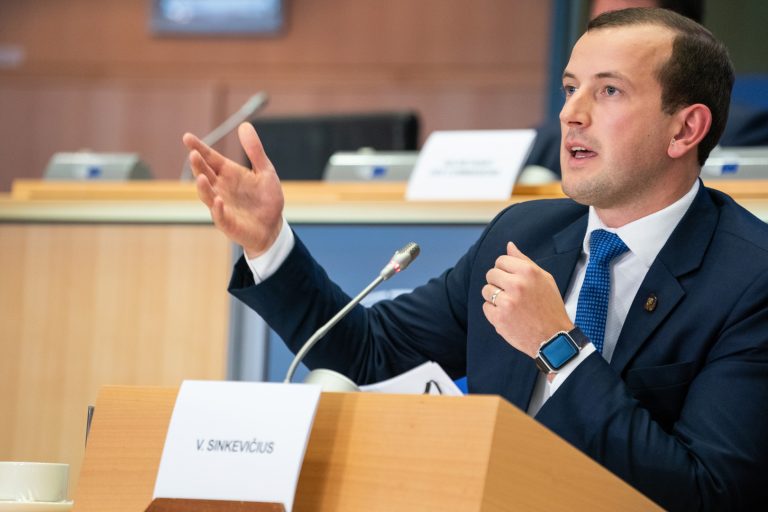This Thursday, the candidate for the future Environment Commissioner, Virginijus Sinkevičius, presented his plans for Europe’s environmental policy for the next five years. The new Commission has set itself the goal of working towards a zero pollution strategy for Europe and towards chemicals that are safe for the environment and human health.
Endocrine disruptors – hormone-altering chemicals – are becoming an ever greater problem. They attack the hormone levels of infants and children and can lead to lifelong impairments and illnesses. It is estimated that every fourth child in Germany already suffers from chalk teeth, a disease that is triggered by the endocrine disruptor Bisphenol A (BPA) according to animal experiments. My children are two of the many children affected by this disease.
Yesterday, I asked the future Environment Commissioner about his plans to combat these harmful chemicals. The video with my questions to Virginijus Sinkevičius can be viewed here:
It is a great success that, in response to my question, the future Commissioner has committed to work towards banning endocrine disruptors like Bisphenol A in products we are exposed to in our everyday life such as food packaging, cosmetics and toys. In doing so, he would implement an urgent demand of the European Parliament and protect our children and other vulnerable groups from diseases caused by these harmful chemicals. We will closely monitor the drafting of these rules and will vigorously support the future Commissioner in his efforts towards safe chemicals.
It should be noted, however, that within the Commission there is continued resistance to ambitious measures for safe chemicals. Mr Sinkevičius seems despite best intentions to lack the internal backing to commit to the decisive implementation of existing European rules. He has avoided my questions about the long overdue strategy for a non-toxic environment. As early as 2013, the European Parliament and the Council had obliged the Commission, under the 7th Environment Action Program, to adopt this strategy by 2018. Recently, both the Parliament and the Council have consistently pushed for the adoption of the strategy. It must finally tackle the issues of nanomaterials, endocrine disruptors, cocktail-effects, and the risks of chemicals in everyday products to human health. The decision of Mr Sinkevičius not to say anything clear about this strategy is a bad omen for the chemical ambitions of the von der Leyen Commission. After five years of waiting under President Juncker, it is high time to propose and implement forceful measures as soon as possible.
European environmental policy must be based on a robust foundation for safe chemicals. Only through strict rules on the use of chemicals can we ensure that our children are protected from the harmful effects of endocrine disruptors such as Bisphenol A. And only strict chemical regulations can make Europe the leading market for clean chemistry and give sustainable chemical products a competitive edge. We will continue to fight for the Commission to finally honor its commitment.
With Green European greetings,
Sven Giegold


